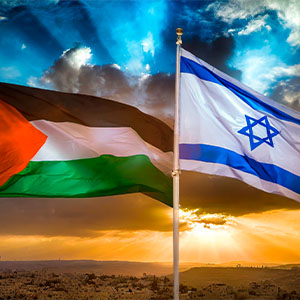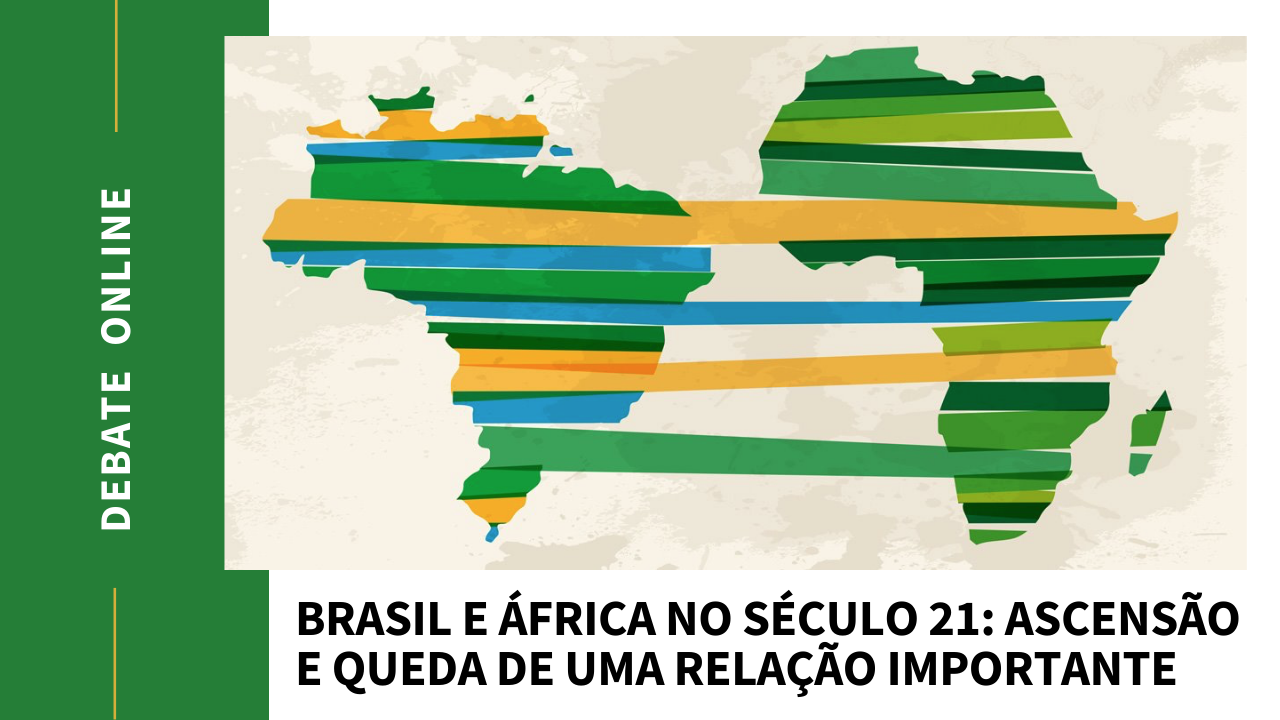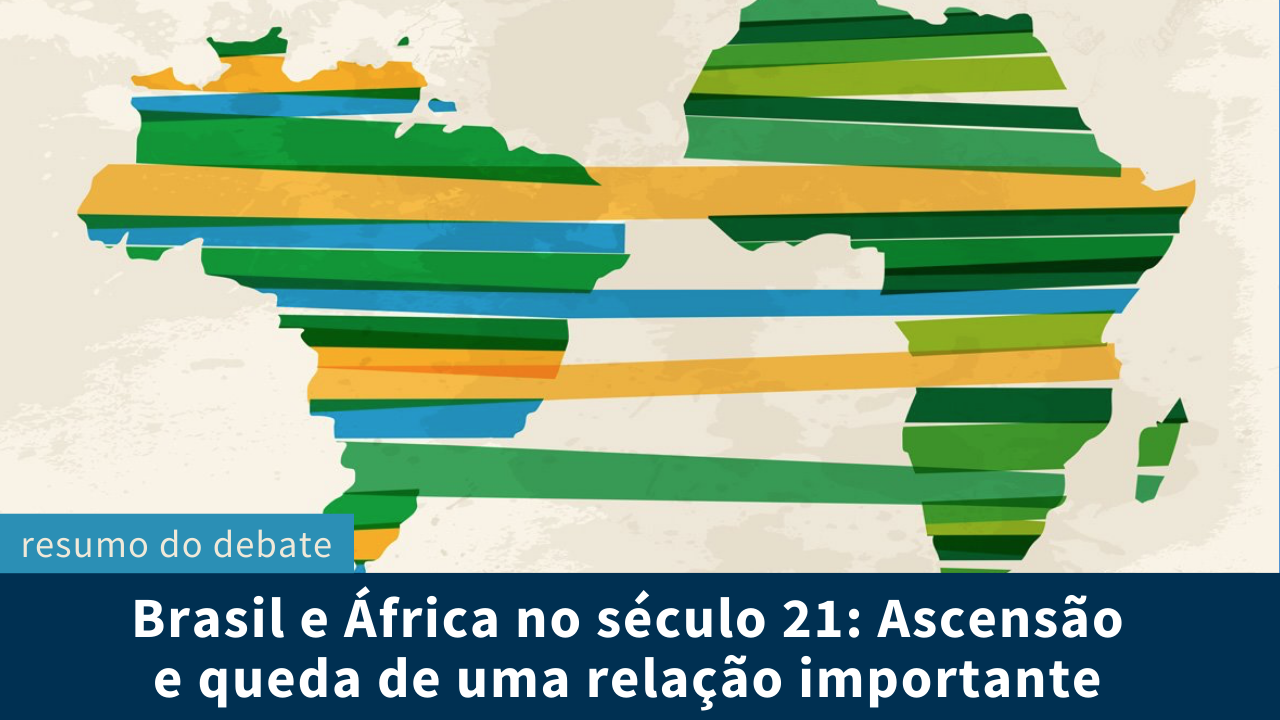Africa is undergoing profound demographic, social, and economic transformations and has attracted increasing attention and investments from different parts of the world. Brazil is losing opportunities and needs to prioritize relations with Africa once again, but it must also learn from its past mistakes and resume business (and other activities) with African countries on a new basis.
It is also essential to incorporate racial and gender diversity and ensure room for Afro-Brazilian entrepreneurs, academics, and professionals from different areas, thus overcoming an agenda guided mainly by large business conglomerates’ economic interests until recently.
Those were the main takeaways from the webinar “Brazil and Africa in the 21st century: The rise and fall of a significant relationship (and how to recreate it on new bases)”, marking the release of the book “Brazil-Africa Relations in the 21st Century From Surge to Downturn and Beyond”, organized by Mathias Alencastro (Brazil) and Pedro Seabra (Portugal), and published by Editora Springer (England).
“Brazil needs to update its view on Africa, which today is the fastest-growing continent in the world, after Asia. Twenty-first-century Africa wants investments and economic development from new bases; they want to industrialize the country and skip steps, aiming at future plans to be more technological and sustainable. The whole world is doing business with African countries. Brazil is lagging behind.”
Natália Dias, CEO of Standard Bank Brasil since 2018.
“The cycle of Brazilian investments in Africa that Petrobras, Odebrecht, and Vale leveraged has ended, in part due to planning and management issues and corruption scandals. Does it justify abandoning a diplomatic project essential for our international insertion? I think not. We must improve governance, redesign our relationships, and start a new phase.”
Mathias Alencastro is a political scientist and specializes in African politics and Brazil-Africa relations.
“The room for maneuver that Brazil has in Africa today has been greatly diminished because other competitors on the continent are unsympathetic to all of the current Brazilian administration's adverse economic cycles and lack of political interest. Opportunities exist, but they must be analyzed realistically, not pessimistically or optimistically.”
Pedro Seabra is a political scientist specializing in security capacity-building in Africa and in South Atlantic's regional dynamics.
“Since the 1970s, the Brazilian diplomatic presence in African nations has sought to benefit from a symbolic component: the fact that about half of Brazil's population is originally from Africa and, therefore, has a 'natural vocation' to relate and do business with Africans. But this is empty speech because, when we analyze the history of Brazil-Africa foreign policy, what we see is a white political and economic elite gazing upon the African continent.”
Irene Vida Gala (ambassador) is one of the leading experts on African-related issues at Brazil’s Ministry of Foreign Affairs.
Sergio Fausto, director of the FHC Foundation, announced that other webinars would be held to debate aspects that go beyond the economic agenda and ensure there is a diversity of voices to the Brazil-Africa relations agenda: “I am committed to organizing other meetings with Afro-Brazilian scholars and African speakers in partnership with think tanks on the other side of the Atlantic.”
'Brazil has a lot to learn from 21st-century Africa'
By 2050, Africa will reach 2.5 billion people (almost doubling its current populace) and have 25% of the world's population, with a rising urban middle class. The African countries’ consumer market is expanding rapidly, with an emphasis on technological and communications advancements. “Technology will be a differentiating factor for African countries to jump directly to a level of development more suited to 21st-century challenges,” explained Natália Dias. Natália holds a Public Administration Degree from FGV and has already occupied prominent positions at JP Morgan Chase, Bank of America Merrill Lynch, and other global financial institutions.
To give an example, she cited the growing investments in wind and solar energy and the emergence of several fintechs that are improving the population's access to financial services and products, even credit. The CEO of Standard Bank Brasil also highlighted the Common African Market's significance in integrating production chains and promoting free trade within the continent.
“Why does Africa occupy a large amount of media space outside the country and not here? Why are the leading multinationals investing in the continent, and our companies seem to have given up? This short-sightedness must be put aside, and we must analyze what we did wrong in the recent past and define how we are going to act from now on,” said the Brazilian executive.
Natália pointed out that 15 African countries are ahead of Brazil in the World Bank's Doing Business 2020 ranking. In last year's report, Brazil ranked 124th out of a total of 190 countries. Rwanda (38th), Morocco (53rd), Kenya (56th), South Africa (84th), and Senegal (123rd) are some of the countries on the continent where, according to the World Bank, the conditions for doing business are better than in Brazil.
According to the speaker, the main topics of the current African development agenda are:
- industrialization and reduction of import dependency;
- agricultural modernization;
- investments in infrastructure;
- evolution of the energy matrix;
- telecommunications/internet access;
- partnerships in the health, education, and general services sectors.
“Brazil has the know-how and experience to contribute in several of these areas, but we need to learn from this new emerging Africa and incorporate its perspectives,” she concluded.
The '3 Ds' of the new business cycle in Africa
Mathias Alencastro believes the Brazilian Development Bank (BNDES) should continue to support Brazilian companies that invest in the African continent. “The problem was not an alleged excessive BNDES investment, but the concentration of resources the bank made available in just a few companies and countries. It is necessary to expand this scope, qualitatively improve investment requirements, include criteria for good governance and respect for the environment and human rights, and bet that African companies will mature. African companies have learned a lot from the recent corruption scandals, some involving Brazilian companies,” said the Brazilian Center of Analysis and Planning (CEBRAP) researcher.
Mathias suggested that the country adopt “a 3-D strategy” in its new relationship with Africa:
1. Diversify - “There are several cases of small and medium-sized companies that managed to enter Africa and just need a financial boost. BNDES's challenge is to look for these companies and support them. Diplomats can also help them go further.”
2. "De-Lusophonize" - “If we stay in our comfort zone, meaning that we focus only on Angola and Mozambique (former Portuguese colonies), we have a greater chance of repeating our mistakes. We have to go to Ethiopia to learn how a poor country is industrializing with money from China, learn about the results of the important technological diversification that is taking place in Kenya, finally go beyond the Portuguese-speaking world, incorporate the new ideas that are happening in other countries and learn from them;
3. Demystify - “As Ambassador Irene said, we must put aside the idea that we have a 'natural vocation' in Africa. Present a new image of Brazil in Africa. Soft power is important. It’s what sets us apart from China, but it has to be a new soft power, not the one that didn't work. And there is no soft power without hard power. The involvement of important Brazilian companies, active and effective diplomacy, and BNDES resources is essential for this.
Mr. Alencastro defended that agribusiness has a central role in leveraging a new business cycle between the two sides of the Atlantic: “Brazilian agribusiness can greatly adapt to the production conditions of different regions of Africa because it has lengthy experience in tropical agriculture, it is at the cutting edge of technology, and it is highly competitive. It has everything needed to inject new blood into this relationship.” The health, education, general services, and renewable energy sectors also have great potential.
’Brazil cannot compete with China’s toolbox’
Pedro Seabra, a researcher at the Center for International Studies of the University Institute of Lisbon, highlighted that Brazilian foreign policy for Africa in recent decades, since the Fernando Henrique Cardoso administration (1995-2002) and especially during the Lula administration (2003-2010), “was part of the narrative when Brazil found itself in a rising socioeconomic development phase and aspired to belong to a more restricted club of powers that influenced the planet's destinies.”
The country's desire to occupy a permanent seat on the UN Security Council and its willingness to lead United Nations peacekeeping missions were other aspects of its international insertion strategy. “Brazil was indeed seen as confident in the international diplomatic environment and as a country capable of building bridges. Today, we unfortunately see more clearly the limits of the Brazilian capacity to take on responsibility and bear all the consequences of a higher profile in Africa and other regions,” he said.
“The irony of the current situation is that the Brazil that has benefited from the competition with other foreign actors in Africa (even Portugal), that grew, positioned itself, and achieved its goals, no longer seems to have the capacity to even compete with other nations in the short-term, especially China,” he stated.
“In the past decade, Brazil has gotten caught up in the illusion that it could compete with the avalanche of Chinese credit lines. In the future, the country could make the same assumptions of the recent past, which would be a mistake from my point of view. After all, the Brazil of 2021 is not the Brazil of 2013 (end of the so-called 'commodities boom'), just as the China of 2021 is no longer the China of 2013,” concluded the Portuguese political scientist.
'The black movement steered Lula's policy towards Africa but lost ground in its implementation'
Diplomat Irene Vida Gala offered another look at Brazil-Africa relations. According to her, Brazil and Africa have an undeniable common history, which is not of the domination or exploitation of one over the other, as “both are victims of centuries upon centuries of slavery.” Neither the former European colonial powers nor China nor India could have historical and racial ties as strong as Brazil. Therefore, the country could foster this soft power's potential by actually including racial and gender diversity at the center of relations with African countries, both bilaterally and multilaterally.
Gala highlighted that the Afro-Brazilian movement had a major influence on the country's diplomacy in Africa during former president Luiz Inácio Lula da Silva's two terms (2003-2010). “In Lula's government program, Africa was mentioned in the exact same words in the passage on racial equality policies and in the chapter dedicated to foreign policy. Therefore, it was undoubtedly the black movement that defined the continent as a priority. At the time, a community of black professionals saw an opportunity to actively participate in the much-desired Brazil-Africa rapprochement. Unfortunately, when that policy was implemented, this group was not able to occupy the space it aspired to have,” said the author of the book Política Externa como Ação Afirmativa: Projeto e Ação do Governo Lula na África - 2003/2006.
According to the former Brazilian ambassador to Ghana (2011-2017), “the Brazilian businessman does not do his homework before he does business with African countries.” “We think that since we have a large black population, we know the Africans’ customs, but that is not the case. Our prejudice and racism go beyond borders. The Afro-Brazilian person is an actor that can guide the country's actions with Africa and make them dynamic both there and here. Black people and their interests must be recognized and brought into the environment of Brazilian foreign policy," he said.
The speaker suggested that black university professors and researchers, third sector leaders, and entrepreneurs should participate more and become more involved with African societies and the challenges on both sides of the ocean.
'A new generation of Afro-Brazilian researchers'
“We are aware that structural racism still negatively impacts Brazil-Africa relations,” agreed Alencastro. The political scientist agreed that the black academic community in Brazil could be more active: “Fortunately, we have a whole new generation of Afro-Brazilian researchers, such as Nicolas Lipollis, a Ph.D. candidate at the Center for the Study of African Economies (Oxford), who are going to make a difference.”
“The objective of the book that Pedro and I organized and just published was to look at Africa through Brazil's prism. Our next objective will be to look at Brazil through the African countries' prism,” he concluded.
Otávio Dias is a journalist specializing in politics and international affairs. A former correspondent for Folha in London and editor of the estadao.com.br website, he is currently the content editor at Fundação FHC.
Portuguese to English translation by Melissa Harkin & Todd Harkin (Harkin Translations)











